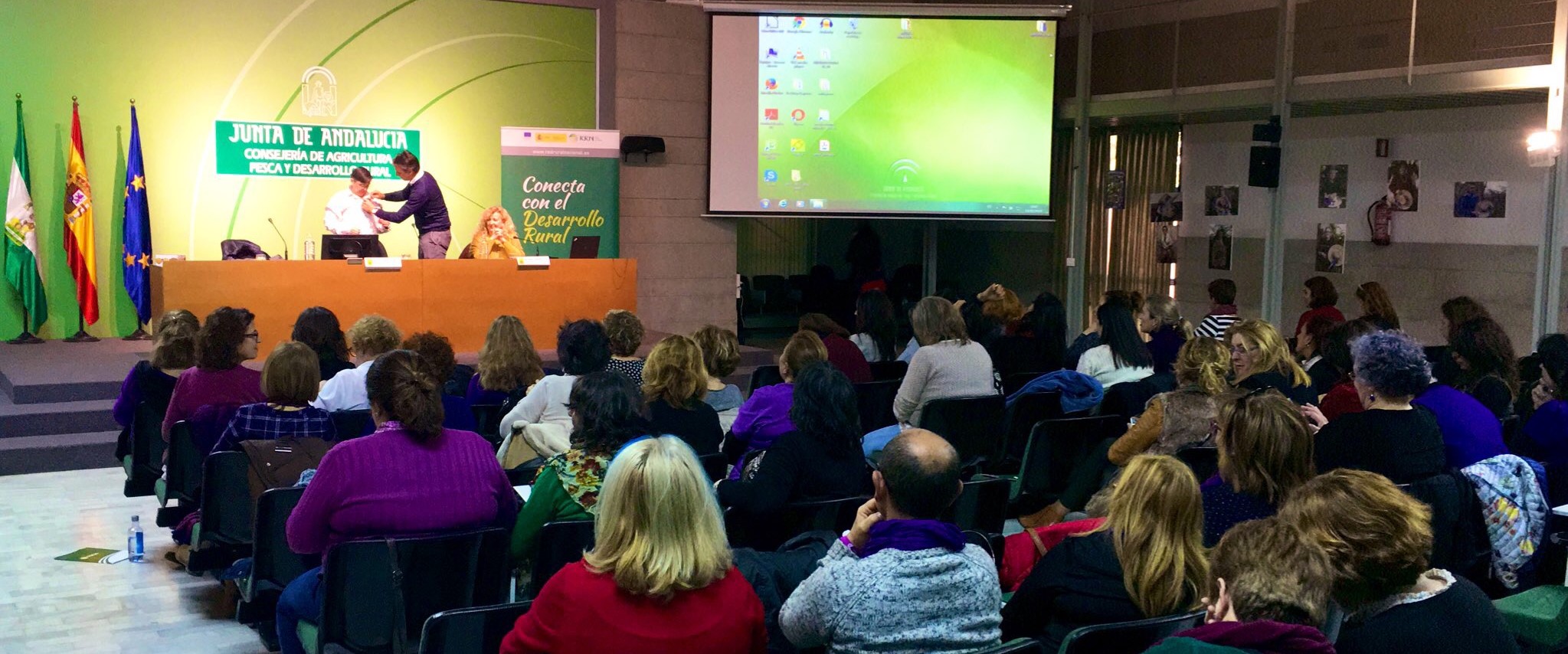
16 de January de 2019
Mujeres
On January 15, 2019, the conference "The Role of Rural Women: Empowerment for Decision-Making" was held in Seville, bringing together more than 100 women from Andalusia, Madrid, the Basque Country, and the Canary Islands, among other countries.
01/16/2019
The meeting was opened by the Director General of Sustainable Rural Development of the Regional Government of Andalusia , and the importance and key role that women play in rural areas in the maintenance and sustainability of territories were highlighted. The event, divided into an afternoon and a morning session, revolved around the three key axes of empowerment: the personal, collective, and social processes. Each presentation addressed and discussed the resources, awareness, recognition of rights, strengths, and interests that women share, which allow for the articulation of mechanisms to increase and gain influence in decision-making and participatory processes.
Based on the experience of the Andalusian Regional Government , the body that proposed this event to the National Rural Network, it was considered vitally important to direct efforts towards the practical empowerment of women , facilitating the incorporation of this group into the decision-making bodies of the Local Action Groups, but also into the various organisations on the national scene, such as cooperatives, unions, associations and federations of the most diverse kinds, which were also present at this event.
“In one life there are many lives . ” These are the words of María Montesino , a sociologist from the Basque Country, pointed out that there are many "shades" in the rural world, where one can be a mother, a woman, and a livestock farmer, each of which is valid. María spoke about the processes, as well as the need to feel part of something; but also about collaboration and cooperativism, where it is more important to join forces in the pursuit of a common interest than to focus on the competition and rivalry that prevails in many aspects of society, even more so in some aspects of rural life. In her presentation, she made special mention of the role of women as a key element in the maintenance of rural areas, stating that, "to inhabit the countryside, we must break away from the model, speak out, propose solutions, and work from the smallest possible perspective, which is where change truly begins."
“Women's empowerment is a process of acquiring and developing vital powers.” This is how Neus Albertos Meri , a trainer and feminist, began her presentation on the resources available for empowerment, based on shared rights, skills, knowledge, and experiences, which favor a change of position. She pointed out that “women's alliances and networks are necessary avenues and resources for empowerment,” with women being necessary allies in the development of skills and empowerment, both personally and collectively.
Promoting gender equality, women's participation in governing bodies, and improving spaces for debate to address the needs and demands of rural stakeholders regarding gender issues and women's empowerment were some of the objectives set out to achieve with these workshops. During the afternoon session, Victoria García Espejo , Director of the Department of Equality of the Fuenlabrada City Council (Madrid) and representing the "Clara Campoamor" School of Feminist Thought, also participated. She presented the projects and programs implemented since 1991 with a focus on gender equality, women's empowerment, and participation in decision-making processes. The workshop concluded with a question-and-answer session from the attendees, where they were able to present, in addition to their individual reflections, the general conclusions of the workshop.
“Without women there is no future; without women there are no people.”









